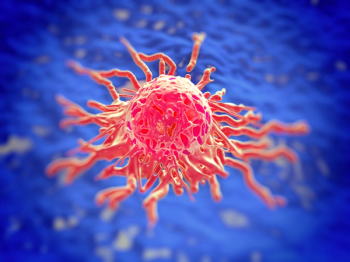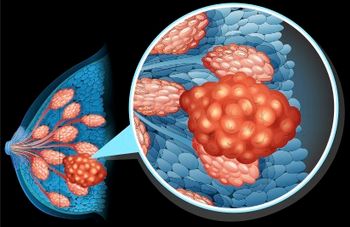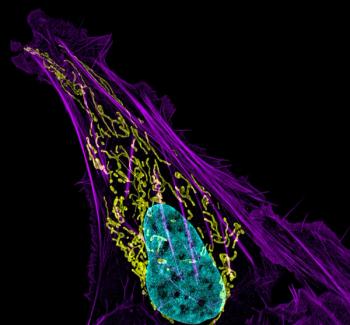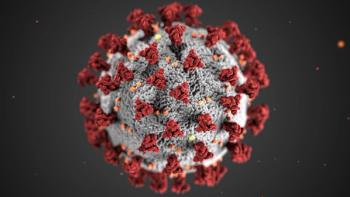
Refractory gastrointestinal stromal tumors can potentially be treated by using a KIT inhibitor combination of PLX9486 and sunitinib.

Your AI-Trained Oncology Knowledge Connection!


Ariana Pelosci, managing editor for CancerNetwork® and the journal ONCOLOGY®, has been with the team since June 2021. She specializes in both web and print, and runs the social media accounts for CancerNetwork®.
She graduated from the University of Delaware, where she studied Media Communications and minored in journalism and marketing. At heart, she is a Jersey girl, and you can always find her down the shore during her free time.
Ariana loves to read, specifically historical or contemporary fiction. Follow Ariana on Twitter @APelosci or email her at apelosci@mjhlifesciences.com.

Refractory gastrointestinal stromal tumors can potentially be treated by using a KIT inhibitor combination of PLX9486 and sunitinib.

A recent trial found that patients with EGFR exon 20 insertion–mutant metastatic non–small cell lung cancer with prior disease control on standard EGFR inhibitors demonstrated efficacy and tolerability of mobocertinib.

Patients with testicular cancer who are treated with platinum-based chemotherapy or radiotherapy have an increased risk of mortality unrealted to their disease.

The FDA approved the use of the Pfizer COVID-19 vaccine for patients of a specific age, at risk jobs, or with serious health conditions.

Results from the phase 3 eXalt3 study indicated that ensartinib led to a longer progression-free survival and intracranial response rate compared with crizotinib for patients with ALK-positive non-small cell lung cancer.

The toxicity profiles of PD-1 and PD-L1 inhibitors displayed unique characteristics when combines with other agents such as chemotherapy, targeted therapy, and immunotherapy.

Pembrolizumab plus chemotherapy compared with the placebo plus chemotherapy demonstrated an improvement in overall survival and progression-free survival for patients with esophageal squamous cell carcinoma.

Patients undergoing implant-based or autologous reconstruction and received adjuvant or neoadjuvant chemotherapy did not have an association with likelihood of complications compared with those who did not undergo chemotherapy.

Patients who were carriers of pathogenic variants of for BRCA1/2 had a better physical and mental quality of life after undergoing risk-reducing salpingectomy compared with risk-reducing salpingo-oophorectomy.

The latest episode of CancerNetwork®’s podcast examines an initiative to diversify patient populations in oncology clinical trials and increase accessibility to these opportunities.

With the combination of mobocertinib and T-DM1, potent preclinical efficacy was observed in lung cancer cells with HER2 exon 20 insertion mutations.

The use of onvansertib in combination with standard-of-care chemotherapy had an increase in the objective response rate and progression-free survival during the phase 1b/2 trial for metastatic colorectal cancer.

The anti-PD-1 antibody spartalizumab demonstrated promising responses in patients with recurrent/metastatic nasopharyngeal cancer.

Patients have higher odds of experiencing rapid relapse in triple-negative breast cancer if they have Medicaid or no insurance, are single, are Black, and have not undergone surgery.

Patients taking teclistamab for relapsed or refractory multiple myeloma saw durable response, and a well-tolerated toxicity profile.

The recommended phase 2 dose for lenvatinib was 14 mg/m2 in relapsed/refractory osteosarcoma.

A large meta-analysis showed a one-third reduction in recurrence or death in patients with HER2-positive early breast cancer with 1 year of trastuzumab added to chemotherapy, confirming the benefit of this therapy across baseline characteristics.

A 3-arm randomized study indicated that domvanalimab-based combinations yielded a promising overall response rate for patients with metastatic non–small cell lung cancer with a PD-L1 status of 50% or more.

A number of prognostic and treatment related factors have been found to impact health-related quality of life among survivors of breast cancer.

Patients with cancer and those without cancer had similar serologic results 6-months after receiving their second BNT162b2 vaccine.

Data from patients with gastric or gastroesophageal junction cancers who were treated with nivolumab showed that effects in the genomic pathways of the gut microbiome may be significantly associated with survival.

High intensity interval training yielded decreased prostate-specific antigen levels and velocity, as well as lowering prostate cell growth in men with localized prostate cancer.

Patients with advanced nasopharyngeal carcinoma and who were treated with gemcitabine plus cisplatin experienced a longer overall survival and improved progression-free survival vs fluorouracil plus cisplatin.

Latina breast cancer survivors are less likely to seek counseling due to concerns that the counselor will not understand their values or have linguistic challenges.

Low study quality was determined in an analysis of real-world studies across multiple drug indications in cancer.

Survivorship incorporated into primary cancer care may be more cost effective and lead to better clinical and patient-reported outcomes in patients with breast cancer and other malignancies.

Patients with non–small cell lung cancer and small-cell lung cancer with bone metastases may benefit from extended dosing with zoledronic acid.

Minority patients with aggressive B-cell lymphoma experienced equitable outcomes through more accessible care and the use of the nurse navigators.

Patients with high-risk early breast cancer who received zoledronate for over 2 years did not experience an improvement in prognosis.

The use of hypofractionated image-guide radiotherapy was not found to improve overall survival for patients with non–small cell lung cancer and poor performance status versus conventional fractionated radiation techniques.